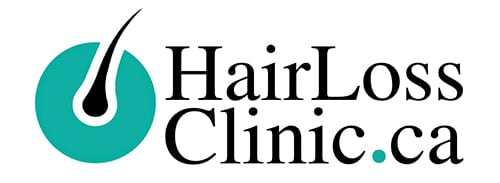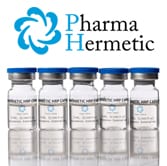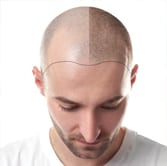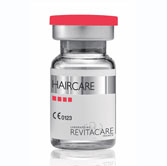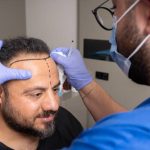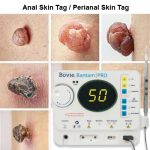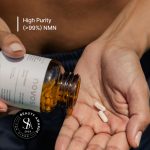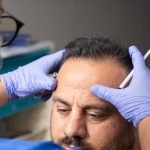
PSORIASIS | CAUSE & TREATMENT | HAIR LOSS CLINIC TORONTO
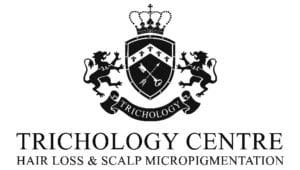
FREE ONLINE HAIR LOSS ASSESSMENT FORM
Are you experiencing any hair loss or scalp issues? Get a Certified Trichologist to assess and help treat your condition in Toronto and Greater Toronto Area. Please complete our online Trichology Assessment Form to get started now.
What is Psoriasis?
Psoriasis is a chronic autoimmune and inflammatory skin condition caused by the immune system mistakenly attacking healthy skin cells. It causes a fast buildup of skin cells causing scaling on the skin’s surface.
In a healthy body, whenever there is an infection, white blood cells (T cells) are deployed to attack the invader. In an autoimmune disorder, the T cells mistaken the healthy skin cells as the invaders. This causes the skin cell production to greatly increase and develop too quickly. The skin cells are pushed to the skin’s surface, where they accumulate into scales. These scales are a common characteristic of psoriasis. The skin cells also become inflamed and red.
Psoriasis affects about 2-3% of the general population.
Scales usually develop on joints, such as elbow and knees. They may also develop anywhere on the body, including the scalp, hands, feet, neck, and face.
What are the Symptoms of Psoriasis?
- Thick, silver coloured scales or plaques on the red patches.
- Red, raised, inflamed patches of skin.
- Soreness around patches.
- Itching and burning sensations around patches.
- Dry, cracked skin that may bleed.
- Thick, pitted or ridged nails.
- Painful, swollen and stiff joints.
What Conditions are Associated with Psoriasis?
Psoriasis is commonly associated with several conditions, including:
- heart disease
- type 2 diabetes
- inflammatory bowel disease
- anxiety
- psoriatic arthritis
- depression
What Triggers Psoriasis?
Many triggers can cause psoriasis flare-up. When your body’s immune system goes into overdrive to fight a sickness or infection, it can cause a flare-up.
- Stress – Stress is a common trigger for a psoriasis flare-up. Psoriasis can also cause stress. Inflammation is a way the body copes with stress. With a stressful event, your body sends out chemicals. In people with psoriasis the immune system over-responds, sending out too many of those chemicals.
- Smoking – smokers have almost a double risk of developing psoriasis compared to people who never smoked. In people who have a genetic tendency for psoriasis, smoking can trigger the genes to become active. Nicotine in cigarettes can alter the immune system.
- Medicine – The use of immunosuppressive drugs, such as biologics and systemic, can trigger psoriasis.
- Illness or Infection – certain infections like strep throat have been shown to trigger psoriasis. Anything that can affect the immune system can, in turn, affect psoriasis. If you get the flu or a cold, that can trigger psoriasis.
- Injury – cuts, bruises, bumps, burns, vaccinations, tattoos, and anything that can cause injury to the skin can cause a psoriasis flare-up. It is known as Koebner phenomenon.
- Heavy alcohol consumption – Alcohol can lower your immune function, which can increase your risk of skin infection. It can increase inflammation in your body which triggers psoriasis flare-ups. It also slows down or stops the effects of medications.
- Vitamin D deficiency – Vitamin D has been shown as a viable treatment for psoriasis. Studies have shown that vitamin D deficiency increases psoriasis development.
- Obesity – There is a two-fold increase of psoriasis development in obese people than people with normal weight. In addition, for each unit increment increase in body mass index (BMI) there is a 9% higher risk increase for psoriasis.
Types of Psoriasis
| Plaque Psoriasis | Plaque psoriasis, or psoriasis vulgaris, is the most common form of psoriasis. It’s characterized by thick red patches of skin, often with a silver or white scaly layer. About 80-90% of psoriasis has plaque psoriasis. |
| Guttate Psoriasis | Guttate psoriasis appears in small red spots on the skin. It’s the second most common type, affecting around 8 percent of people with psoriasis. Most of the time it starts during childhood or young adulthood. |
| Inverse or Flexural Psoriasis | Inverse or flexural psoriasis often appears in skinfolds, such as under the armpits or under the breasts or groin area. This type of psoriasis is red and often shiny and smooth. The sweat and moisture from skinfolds keeps this form of psoriasis from shedding skin scales. |
| Pustular Psoriasis | Pustular psoriasis is a severe form of psoriasis. It develops fast in the form of many white pustules surrounded by red skin. |
| Erythrodermic Psoriasis | Erythrodermic psoriasis, or exfoliative psoriasis, is a rare psoriasis type that looks like severe burns. It may cover large portions of the body with red, scaly skin. |
What’s the Difference Between Psoriasis, Eczema, and Seborrheic Dermatitis?
The 3 conditions often get confused with each other, but they are uniquely different from each other.
| Skin Condition | Symptoms | Onset of condition and Affected Areas | Triggers | Causes and Other factors |
|---|---|---|---|---|
| Eczema | Eczema is the name for a group of conditions that cause the skin to become red, itchy and inflamed. Symptoms: Dry, sensitive skin. Red, inflamed skin. Very bad itching. Dark colored patches of skin. Rough, leathery or scaly patches of skin. Oozing or crusting. Areas of swelling. | Onset: Condition usually starts as a baby. Affected Areas: Appear on the feet, hands and nape of neck. If condition appears on the elbows and knees, it is appearing on the back of the elbows and front of the knees. | Allergens like dust mites, pets, pollen, mold. Foods like eggs, nuts and seeds, soy products, and wheat. | Causes: genes dry skin an immune system problem triggers in the environment Most common type is known as Atopic Dermatitis. It is an Atopic disease involving immune system, including atopic dermatitis, asthma, and hay fever. Commonly found in families with a history of other allergies or asthma. |
| Psoriasis | Skin disorder that causes skin to multiply 10 times faster than normal. Symptoms: Red, raised, inflamed patches of skin. whitish-silver scales or plaques on the red patches. dry skin that may crack and bleed. soreness around patches. itching and burning sensations around patches. thick, pitted nails. painful, swollen joints. Affects nails more seriously causing pitting, thickening, or ridges. | Onset: Condition usually starts as a baby. Affected Areas: Appear on the feet, hands and nape of neck. If condition appears on the elbows and knees, it is appearing on the back of the elbows and front of the knees. | Stress, skin injury, medications, infection | Causes: It is an autoimmune disease with the immune system mistakenly attacking healthy skin cells. Usually associated with other health issues like diabetes, depression, heart disease, and arthritis. Chronic skin disease. It can cause the skin to grow so quickly that they accumulate on the surface of the skin as white scales. |
| Seborrheic Dermatitis | Chronic inflammation of the skin. Symptoms: Skin flakes (dandruff) on your scalp, hair, eyebrows, beard or mustache. Patches of greasy skin covered with flaky white or yellow scales or crust on the scalp, face, sides of the nose, eyebrows, ears, eyelids, chest, armpits, groin area or under the breasts. Red skin. | Onset: Condition usually starts as a baby. Affected Areas: Appear on the feet, hands and nape of neck. If condition appears on the elbows and knees, it is appearing on the back of the elbows and front of the knees. | Stress, hormone changes, chemicals, illness, solvents, soaps, harsh detergents, dry weather, microorganisms on the skin. | Causes: Exact cause unknown. Genes and hormones play a role. Not a result of an allergy. Made more likely by factors such as increased production of sebum (an oily substance) in the skin, fungi that affect the skin like yeast, and a weakened immune system. |
What Treatment is Available for Psoriasis?
There is no cure for psoriasis. Certain treatments are available to help with the condition.
Prescription topical medications include corticosteroids (steroids), PDE4 inhibitors, topical calcineurin inhibitors (TCIs) and skin barrier creams. Available through your doctor, these medications are applied to the affected area of the skin to help ease redness, rash, dryness and itching.
Eliminating or Reducing Certain Triggers
Certain triggers can cause psoriasis flare-ups. Avoiding certain triggers can reduce them. If you smoke or drink alcohol you should try to reduce or eliminate them. Taking vitamin D, reduce stress and lose weight can all help to reduce psoriasis flare-ups.
Laser Therapy for Psoriasis
Laser therapy is a new method to treat psoriasis and has shown promising results. It doesn’t have the negative side associated with traditional medications. Laser therapy requires a regimen of two sessions a week for 4 to 10 sessions to see results. It is different from traditional light photo-therapy that requires more sessions. Laser therapy has a stronger dose of light that can penetrate deeper into the affected skin. The handheld laser is convenient to reach hard to treat areas like the elbows, soles of the feet, scalp and knees.
How Does Laser Therapy Work?
A device called an Excimer laser directs a high intensity ultraviolet B (UVB) light on the affected area. The specific wavelength is 308 nanometers (nm) is used to attack the DNA of T cells. The laser works through various mechanisms to improve the appearance of the plaques that feature in psoriasis. One of these mechanisms appears to affect the immune system, including the T cells.
Excimer laser for the treatment of psoriasis: safety, efficacy, and patient acceptability
https://www.ncbi.nlm.nih.gov/pmc/articles/PMC5683125/
“Although the excimer laser is not a first-line treatment, it remains an excellent treatment option for psoriasis patients and has been demonstrated to be an effective treatment with little to no side effects.”
If you are interested in laser therapy psoriasis treatment, please contact us at 647-492-9093.

FIND A TRICHOLOGIST IN TORONTO GTA
With the numerous available treatments for psoriasis our Trichologist can recommend the best treatment that can help with your psoriasis. At Trichology Centre, we have helped patients with psoriasis, advising them the best treatments available and helping them regain their confidence and self-esteem. Early assessment and treatment from the onset of psoriasis is important and can help prevent the condition to worsen.
We have two clinics in the Toronto GTA,
TRICHOLOGY CENTRE | hairlossclinic.ca | hairtattoo.ca | laserhairtherapy.ca
225 Wellesley St E, Toronto
9140 Leslie St, Richmond Hill.
Please give us a call at 647-492-9093
ADDRESS
Toronto, 225 Wellesley St East #5
Richmond Hill, 9140 Leslie St #301
PHONE
(647) 492-9093
hairlossclinic.ca@gmail.com
WORKING HOURS
Mon-Sat 9:00 am - 8:00 pm
Sunday CLOSED
Comments are closed.
